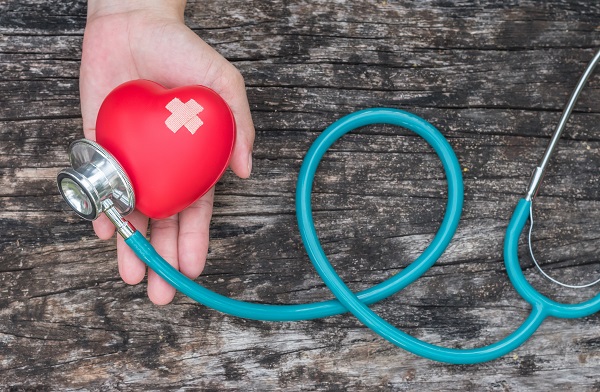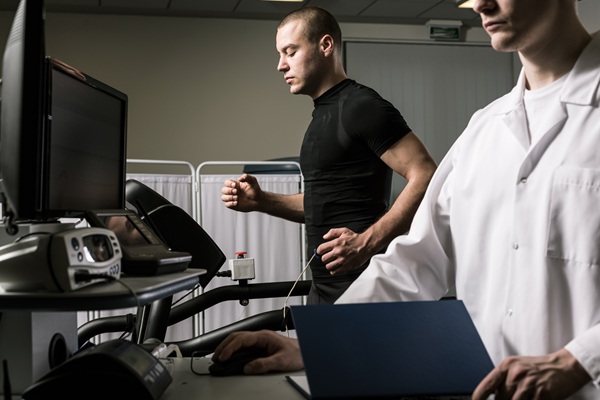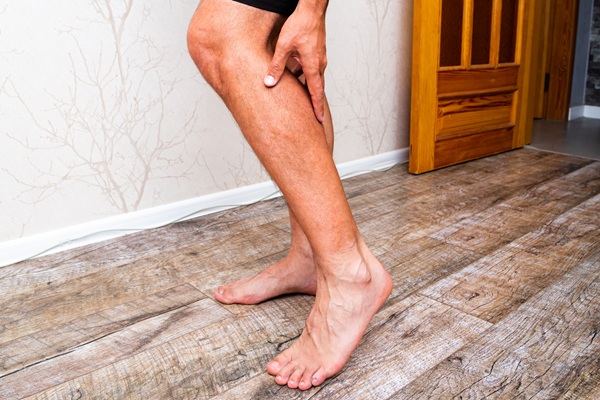How are Cholesterol and Heart Health Related?

Cholesterol is a compound that is found in body tissues that helps to insulate nerves, produce hormones and build new cells. Cholesterol is usually made by your liver, but it can also get in your body through food like meat and eggs. If you have a high level of cholesterol, you are at risk of heart disease.
Cholesterol and heart health
When you have too much cholesterol in your blood, it starts to build up in the walls of your arteries, leading to heart disease. Due to the high level of cholesterol in your blood, your arteries become narrowed, which limits the flow of blood to your heart muscles.
Since blood carries oxygen to your heart, the lack of blood flow and oxygen to the heart may lead to chest pain. If the blood supply to your heart is completely blocked off, you will end up having a heart attack.
Types of cholesterol
There are two forms of cholesterol. High-density lipoprotein (HDL) is known as the good cholesterol, while Low-density lipoprotein (LDL) is known as the bad form of cholesterol. HDL helps to remove cholesterol from the blood while LDL is the artery-clogging form of cholesterol that leads to heart disease.
According to research, high levels of triglycerides, another form of fat in your bloodstream, may also lead to heart disease.
Can you tell if you have high cholesterol?
Unlike most conditions in your body, there are no symptoms associated with high cholesterol. This is one of the reasons why many people do not know that their cholesterol level is too high. Since there are no symptoms, it is up to you to ask your physician about your cholesterol numbers and come up with a plan to lower them. By lowering your cholesterol levels, you reduce your risk of developing heart disease.
What is the ideal level of cholesterol in the body?
Checking your cholesterol level is done with a blood test known as a lipoprotein profile. It takes note of:
- LDL
- HDL
- Total cholesterol level
- Triglycerides
When you receive your test results, your physician will explain what the numbers mean to you. The rule of thumb with a cholesterol test is that your total cholesterol should be under 200. If your cholesterol level is between 200 and 239, you are a borderline case. If it is above 240, your cholesterol level is too high.
When it comes to LDL, the optimal result is less than 100. If it is between 100 and 129, you are still near optimal. If it is above 160, it is too high. Your HDL, which reduces your risk of heart disease, should be over 60. If it is lower than 40, you are at high risk for developing heart disease.
Factors that influence cholesterol levels
Your diet
Carbohydrates, saturated fat, trans fat and the cholesterol in the food that you eat can increase your cholesterol levels. Try to limit your intake of these foods to keep your heart healthy.
Exercise
Staying active. Exercising regularly can help raise your HDL cholesterol and lower your LDL cholesterol. It also helps strengthen your cardiovascular muscles.
Weight
Being overweight increases your risk of developing heart disease and is linked to high cholesterol levels. Losing weight will also bring other benefits with it besides reducing your cholesterol levels. Your joints will be under less stress, you will have less fat and you decrease your chances of developing a condition like diabetes.
Treatment
You can treat your cholesterol and reduce the risk of heart disease by eating a healthy diet, exercising regularly, taking medication to lower your cholesterol and by maintaining a healthy weight. Your doctor can develop a personalized plan to help you take control of your health.
When did you last see the doctor?
Since there are no symptoms associated with high cholesterol levels, you should make sure you ask your physician for a cholesterol test during your next visit. If you do not have a doctor, please call our office to schedule a visit.
Request an appointment here: https://boyntonbeach.floridapremiercardio.com or call Florida Premier Cardiology at (561) 229-1411 for an appointment in our Boynton Beach office.
Check out what others are saying about our services on Yelp: Read our Yelp reviews.
Recent Posts
A cardiac stress test is a diagnostic tool to evaluate how well the heart performs under physical stress. Cardiologists use this test to detect underlying cardiovascular conditions, monitor treatment progress, or assess the risk of future heart complications. Cardiac stress tests are essential in the early detection and management of heart disease.A cardiac stress test…
Peripheral arterial disease affects blood flow in the arteries, most commonly in the legs. It develops due to plaque buildup in the arteries that causes them to narrow and restrict circulation, possibly leading to discomfort, difficulty walking, and other serious complications. Recognizing the symptoms early and exploring treatment options can help improve the quality of…
Receiving cardiovascular treatment is a critical step in managing heart health, but recovery and long-term are equally vital to ensure long-term wellness. Whether the treatment involves medication management, interventional procedures, or surgery, maintaining a relationship with the cardiologist and following their recovery guidelines is crucial. A structured follow-up plan allows patients to maintain the benefits…
An echocardiogram is a common and painless test that helps doctors evaluate heart health. This test uses sound waves to create images of the heart, allowing cardiologists to examine its structure and function. Many people feel nervous before a medical test, but understanding what to expect can help reduce stress.An echocardiogram is a diagnostic test…


